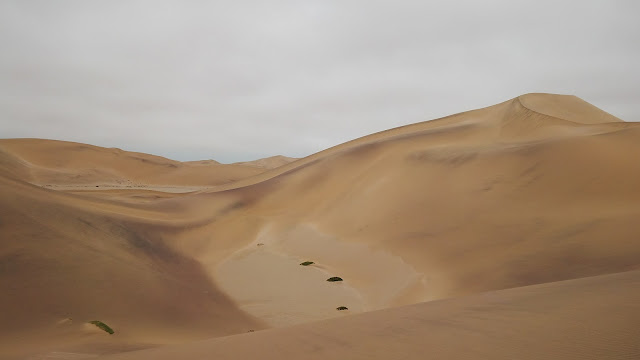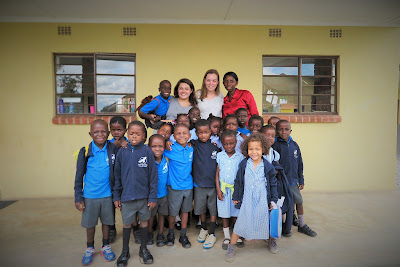Many people have asked me how Christmas is celebrated in Zambia. Some of the shops in Ndola had their decorations up and Christmas music playing from early November. Yet the warm weather meant it didn't really feel like Christmas to me. From speaking to Zambian friends it seems that their main celebrations take place on Christmas Day with family and friends and lots of food. For many it's still their usual food, nshima (maize), but at Christmas some people will branch out and have rice or something different. Most Zambian people will also go to church on Christmas Day.
 |
| Grade 3 angels |
There don't seem to be any Christmas songs in the local language, Bemba, but some people can sing Christmas songs or carols in English. We taught the children at Kapumpe to sing 'Mary's Boy Child' in assembly. It was quite impressive when you consider that English is the children's second language. Click on the video below to hear it for yourself.
I have really enjoyed being back home in the UK for the build up to Christmas. Mulled wine, carol singing and decorating the tree are very much part of our traditions here, which some of my expat friends in Ndola will no doubt be enjoying too. But on the whole there doesn't seem to be as much fuss about Christmas in Zambia. Whilst I love all the 'fuss' and like to embrace everything Christmassy throughout the month of December, it's good to remember the real reason we celebrate; that Jesus came to earth so we can know God.
In response to the Band Aid song, yes they do know it's Christmas in Africa! This year we hosted our first Christmas performance at Kapumpe. All the children joined together to sing, and Grade 3 acted out the nativity story. They did so well! This isn't a typical thing to do in Zambian schools but the children really enjoyed it. It was great to see their confidence performing in front of an audience. All the parents, guardians and Bible College staff who joined us thoroughly enjoyed it.
 |
| Joseph, Mary and the donkey |
 |
| Wise men and camels |
 |
Proud parents and guardians with their children
If you can spare a few pounds to give one of our needy families a gift, just click on the link below to donate towards this appeal. Thank you for your generosity which will mean a huge amount to our local families.
Wishing you all a very Merry Christmas and a Happy New Year!
 |
| Grade 3 at Kapumpe's first ever Christmas performance |













































